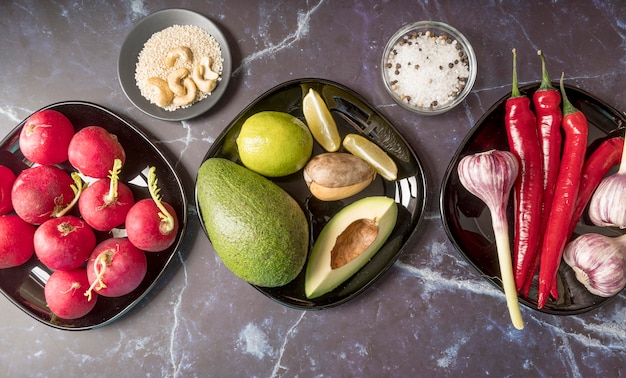
Dealing with eczema? Some foods can help reduce the inflammation that causes dry, itchy, and flaky skin, says nutritionist Olga Hamilton. Eczema is a chronic skin condition that often leaves the skin feeling irritated, and in the UK, it affects one in five children and one in twelve adults.
While your diet might not be the initial cause of eczema, certain foods can trigger flare-ups. Research shows that dietary factors can worsen eczema, with reactions occurring shortly after consuming specific foods. Nutritionist Olga Hamilton shares five dietary strategies to help manage eczema.
Probiotics are live microorganisms useful to your immune system. They prevent harmful bacteria growth in your gut, which is crucial for overall health. The most common probiotic strains are Lactobacillus and Bifidobacterium, which have been researched for their gut health benefits. An enhanced presence of probiotics in the gut is linked to protection against eczema. These “good” bacteria reduce immune dysfunction and inflammation. Foods rich in probiotics include yogurt, kefir, raw cheese, fermented soy products like natto and tempeh, kombucha, sauerkraut, and kimchi. Incorporate these by adding a small amount daily and varying your choices throughout the week.
Stomach acid can destroy many good bacteria you consume, but prebiotics help by feeding the probiotic bacteria, aiding their growth. Prebiotics are indigestible carbohydrates that pass through the small intestine and nourish probiotics. The benefits of prebiotics include protection against intestinal infections and aiding inflammatory conditions, including eczema. Foods high in prebiotic fibers include beans, legumes, Jerusalem artichokes, leeks, shallots, chicory, asparagus, mushrooms, garlic, and onions. Combining probiotics with prebiotics enhances their effectiveness and resistance to stomach acid. Aim for three portions of any of these vegetables daily, with one portion being 80 grams for vegetables and 120 grams for cooked legumes.
A primary factor in eczema is poor liver function. When the liver is overloaded with toxins from food allergies, it struggles to filter blood efficiently. Unprocessed toxins are often eliminated through the skin, causing inflammation that can turn into eczema. Consumption of cruciferous vegetables can help. They contain glutathione, which maintains normal inflammatory responses and helps the liver produce detoxifying enzymes. This allows the liver to function optimally, reducing inflammation that leads to eczema. Dark green cruciferous veggies are excellent sources of folates, vitamins K and E, and chlorophyll, which reduce inflammation and bacterial growth. Include two portions of cruciferous vegetables daily in any form: cooked, raw, tinned, frozen, baked, stewed, or roasted.
Turmeric, a spice commonly used in Asian cuisine, has been historically used for its medicinal properties in Ayurvedic medicine. Curcumin, the active ingredient in turmeric, helps restore depleted levels of glutathione, an antioxidant that strengthens the immune system and can assist with autoimmune disorders like eczema. Studies have shown that creams containing turmeric can significantly reduce eczema symptoms.
Vitamin D is essential for various bodily functions. It’s produced in the skin in response to sunlight and can be found in foods like wild oily fish, vitamin D-enriched mushrooms, and grass-fed cow’s butter. A study found that people with eczema had significantly lower levels of vitamin D compared to those with adequate levels. As an immunomodulator, vitamin D helps the immune system function properly and reduces inflammation by regulating the production of inflammatory cytokines and immune cells. Vitamin D deficiency is common, with surveys showing about one in five people in the UK have low levels. Symptoms of deficiency can be subtle, making it hard to pinpoint the cause.
In summary, incorporating probiotics, prebiotics, cruciferous vegetables, turmeric, and vitamin D into your diet can help manage eczema by reducing inflammation and supporting your immune system and liver function.